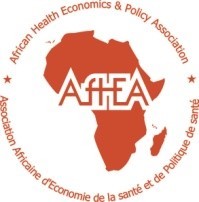Overview:
The Disease Control Priorities Network, in conjunction with the African Health Economics Association, hosted an intensive workshop on March 10 on a new methodology for economic evaluation of health policy called extended cost-effectiveness analysis (ECEA). ECEA provides a methodological framework of economic evaluation to determine the distributional and financial risk protection consequences of health policy as it relates to specific interventions (e.g. the use of universal public finance for rotavirus vaccination) in a population. Traditional cost-effectiveness analysis (CEA) assesses the cost of a given health intervention and compares it to the associated health gain. CEA measures are limited, however, in their inability to examine the context in which an intervention is implemented and its effect on distinct groups of people. ECEA, on the other hand, allows researchers to evaluate not just a health intervention, but the costs and benefits of the policy along two key additional dimensions:
- ECEA quantifies the distribution across distinct groups in a population of health and economic consequences;
- ECEA quantifies household financial risk protection (cases of impoverishment averted).
The one day workshop was facilitated by DCP3 Senior Health Economist Stephane Verguet, and DCP3 Health Economics Analysts Zachary Olson and Elizabeth Brouwer.
Objectives:
This intensive 1 day workshop aimed to prepare experienced researchers to conduct modelled health economic evaluations using ECEA methodologies. The workshop laid the groundwork for the formation of collaborative research teams that will prepare policy-relevant ECEA analyses in the coming months and years. It also provided an opportunity for researchers interested in equity and financial risk protection to network.
Goals:
-
Review the steps and data needed to conduct a modelled health economic evaluation
-
Provide participants with a conceptual understanding of ECEA
-
Transfer the method and template model to enable participants to conduct an ECEA
-
Establish collaborative research teams of regional and global economic experts
-
Enable participants to contribute to the evidence base in their country on health economics
|
DCP3 Senior Health Economist, Dr. Stephane Verguet, introduces the extended cost-effectiveness analysis model to workshop participants. |
DCP3 Health Economics Analyst, Zachary Olson, assists a workshop participant during the independent modelling excerise of the workshop. |
|
Workshop participants work in small groups to complete the ECEA modelling exercise. |
Commission on Investing in Health commissioner, Dr. Agnes Soucat, give a presentation on the global health convergence agenda at the closing reception. |



